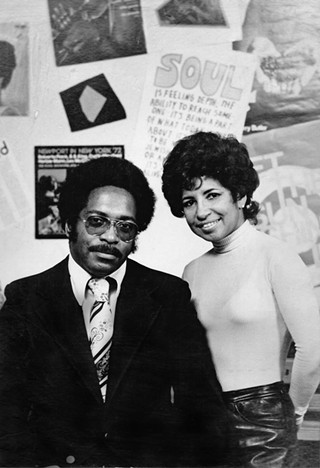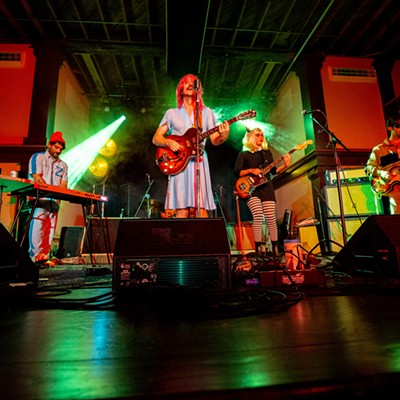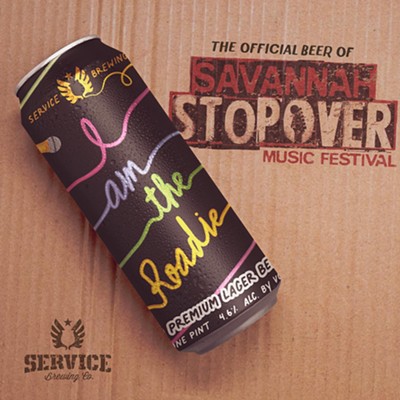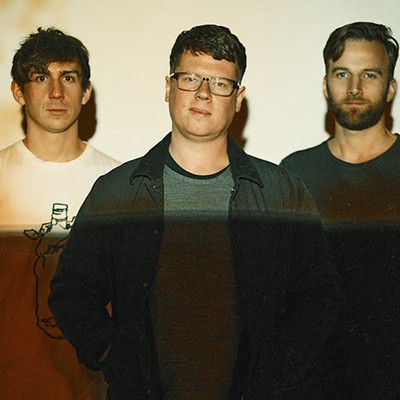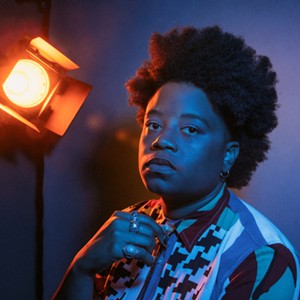Every morning, Gloria Tucker says, she wakes up and the first thing she thinks of is Ben. It's been just over six months since her husband of 47 years died, mowed down in his golf cart by a speeding car that should not have been there, and the shock and sorrow have not abated even a little.
"It's not easy," she says quietly, sitting in the sunny living room of the condo she and Ben bought in 1992, framed photos of him — and of them together — covering the walls.
"It's pretty difficult, especially at this time of year. We had an anniversary in October, and then there was Thanksgiving. And then Ben's birthday was the 13th of December. And now it's Christmas... and he's not here. So these are very difficult times."
The couple had no children.
The former Gloria Daly is 86. Except for the anguish etched into her face, she looks 20 years younger.
Ben and Gloria were together for 52 years. When they met in New York City, he was a jazz bassist who'd played with Peggy Lee, Art Blakey, Freddy Cole and Herbie Mann, among others. She was an executive secretary at a large advertising firm. Both had been married previously.
Gloria was the inspiration for "Comin' Home Baby," the hit song Ben wrote with Bob Dorough in 1962.
Ben and Gloria were married in 1966, the year that Bobby Hebb's "Sunny" — discovered and published by Ben Tucker, who'd known the Hebb family in his native Nashville — reached Number 2 in the national charts.
For a while, Gloria's husband would be out playing all night, come home to grab a few hours' sleep, then leave for his publishing office at 8 in the morning. "Ben was a very complex person," she says, "and extremely ambitious. Much more ambitious than I even realized."
Despite his earlier success in music, he was determined to make a go of it in the business world. In 1970, he put his standup bass in storage, and began looking for a radio station to buy.
"He liked challenges," says Gloria. "He was looking at radio stations all over the country, and he was having a hard time finding one. He had an idea of what he wanted. And evidently, Savannah met the criteria."
He paid $400,000 for Savannah's WSOK, a low-power AM station, in 1972. "It was owned by Caucasians, but the format was black," Gloria recalls. "He had a philosophy that he wanted to work in the community, so that there would be a cohesive understanding among blacks and whites. That was his idea.
"The idea was, when he bought the station, he would commute. He'd work at the station Monday through Friday, and come to New York on the weekends."
That's not how things worked out.
"The format of the station was black, but everybody with an important position was white. And the day that he took over the station, all the white people quit. He called me and he said 'You have to come down here.' Because in those days, Georgia had a terrible reputation.
"I didn't want to come here, but he was so desperate."
Gloria discovered that she enjoyed management. She was good at it. "So while he was out garnering sales, I was running the station for him," she recalls.
WSOK played jazz and classical music, and it was big on public affairs programming. "Within three months, it was the Number One station in Savannah," Gloria says with pride. "Not the Number One black station, it was the Number One station. Because his programs were so diverse."
Still, it was 1972 in the Deep South. The racial divide in Savannah was considerable.
"At first, we lived in a furnished two-bedroom apartment on the south side," she says. "And then Ben wanted to buy a house in the historic district. We had a hard time finding somebody who would show us property."
Real estate agent Miriam Center, who's still one of Gloria's closest friends, found them a house, which they loved. She arranged the sale through a local realtor.
"The person who actually had the house was furious when Miriam sold it to us," Gloria remembers. "She was livid with anger. And she went up and down the street, warning everybody that blacks were moving in. She knew that we were Episcopal, and she went to the Episcopal Church and told them to beware that we would probably want to come there. And the minister said that he'd be very happy if that happened."
Much of that first decade was bumpy for the Tuckers. "He found an accountant he wanted to hire. And she said 'Mr. Tucker, I have to go and ask my husband if I can work for a black person.' Those are the kinds of things that he encountered."
Gloria, a native New Yorker, was livid.
"First of all, he was from the South, so he knew what to expect," she says. "I didn't. So it took me longer to become accustomed to the ways of the South. And I've met some wonderful people here, I really have.
"One of the employees at the station told Ben 'Come here, but don't expect to be accepted. Because you won't be.' But the opposite happened. Most particularly, we were embraced by the Jewish community. They were just wonderful to us."
At the urging of Savannah musician Teddy Adams, Ben had his bass shipped down and started performing again. "That was his first love," Gloria says. He and Adams formed the Telfair Jazz Society, which exists today as the Coastal Jazz Association.
Ben once ran, unsuccessfully, for the Georgia House of Representatives. "I had no idea that he had these dreams," Gloria says. "But he had a lot of dreams."
After selling WSOK in 1984, he turned his attention to civic matters, donating his time and energy to schools, churches, charities and struggling business organizations. He served on a dozen different boards.
Always, there was music — between 1985 and '93, he managed Hard Hearted Hannah's, a jazz nightclub in City Market.
Around the time the club closed, Ben and Gloria became the first "people of color" (to use her words) to buy into a prestigious high-rise apartment building on Liberty Street.
At first, she recalls, no one in the building would even speak to them. Eventually, Ben was elected president of the condo organization.
In his last years, Ben Tucker indulged his twin passions — music and golf — in almost equal measure. Musically, he was known as a soft touch, and would play bass with just about anyone who had good reason to ask.
He was on the golf course every day of the week, mostly at Westin Harbor Resort — which is where he died on June 4, 2013, at the ripe young age of 82.
"I think he would want people to remember that he loved Savannah dearly, and he really wanted the best for this city," his widow says. "He really did.
"Ben was a very humble person. Most people who knew him were very surprised at his notoriety, the fact that he had worked with some of the top people in the musical business. He was with Peggy Lee for so long. And none of it went to his head, none of it."


